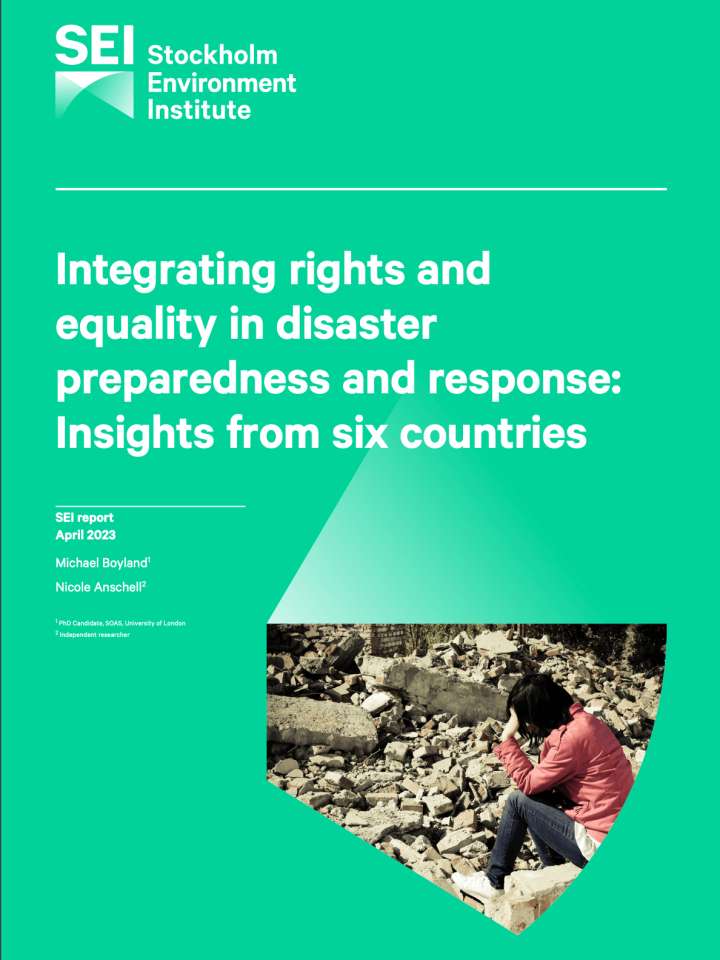Integrating rights and equality in disaster preparedness and response: insights from six countries
The research presented here takes stock of the status of the integration of gender and social equality and human rights–based approaches in disaster preparedness and response, in six countries in Asia: Cambodia, Myanmar, Nepal, Pakistan, Philippines and Sri Lanka. Through policy review and stakeholder interviews, the researchers aim to demonstrate to government and non-government actors that integrating rights and equality in preparedness and response is important, worthwhile and beneficial for all.
Key messages from the research indicate:
- The extent of integration of human rights and gender equality in disaster preparedness and response varies in the six countries in Asia compared here: Cambodia, Myanmar, Nepal, Pakistan, Philippines and Sri Lanka.
- Analysis within the Framework for Integrating Rights and Equality (FIRE) shows changes that can be made to various systems across scales that can reinforce the rights and equality measures to “leave no one behind” before, during and after disasters.
- Important dimensions are fulfilling fundamental rights, ensuring non-discrimination, enabling meaningful participation and access to information, creating transparent and accountable governance systems, supporting the agency and empowerment of marginalized groups, and accounting for social norms.
- This analysis also shows the barriers to full and meaningful integration of rights and equality in a disaster context in the six countries. The 10 recommendations in this report include ratification of human rights agreements and establishing legal measures that can remove barriers to response in each country. Participation must be fostered in transparent and easy ways, especially for disenfranchised stakeholders.
Explore further
